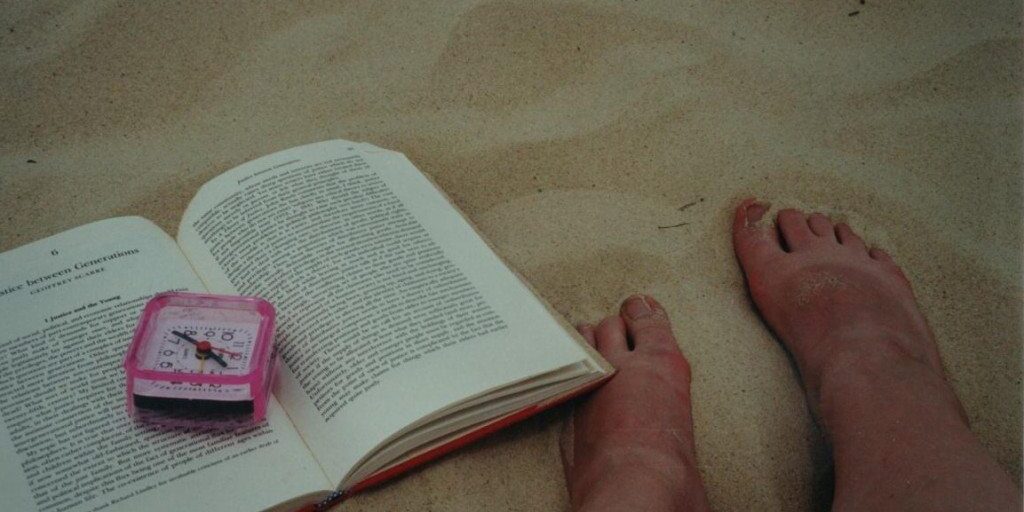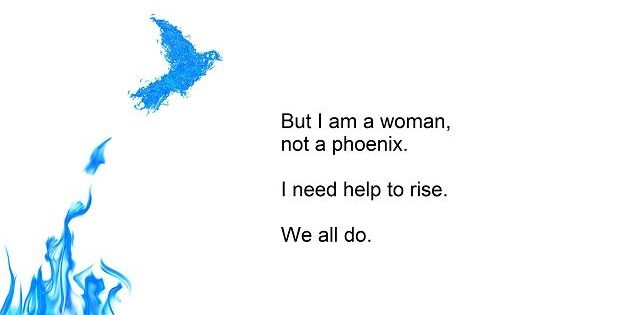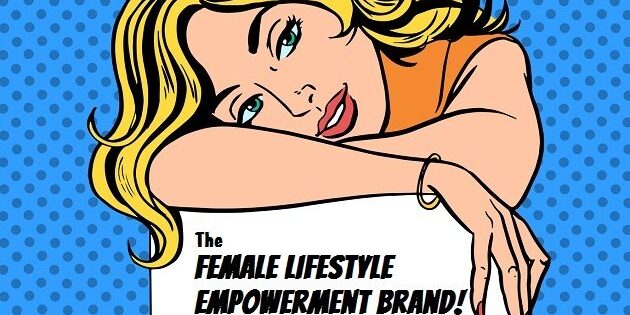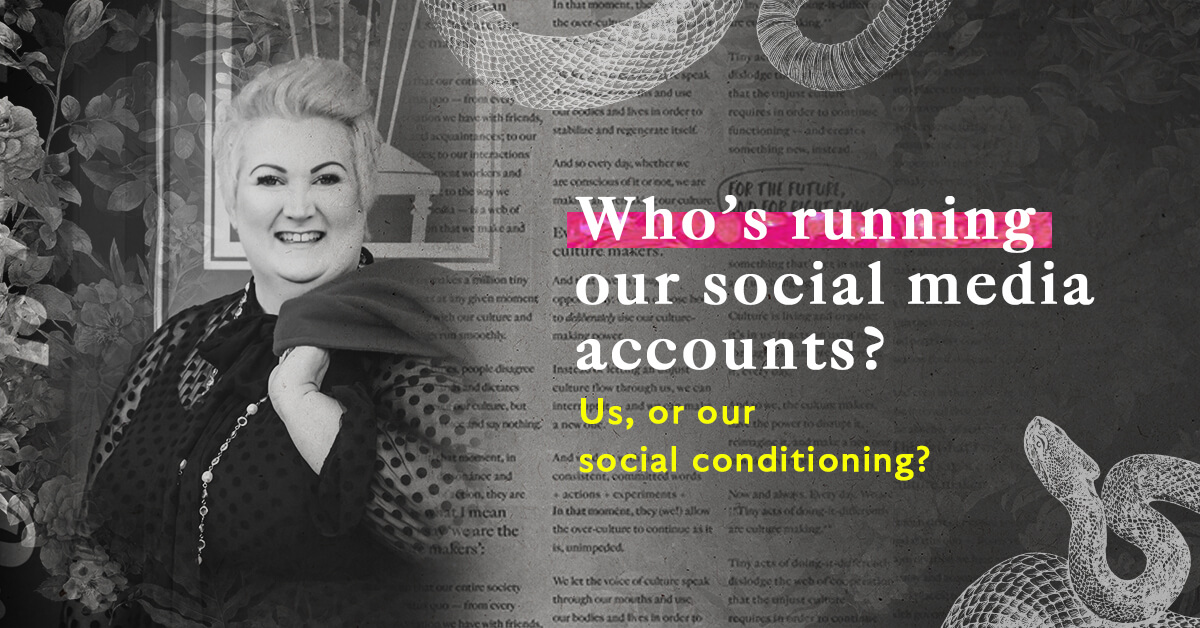
Who’s running our social media accounts? Us, or our social conditioning?
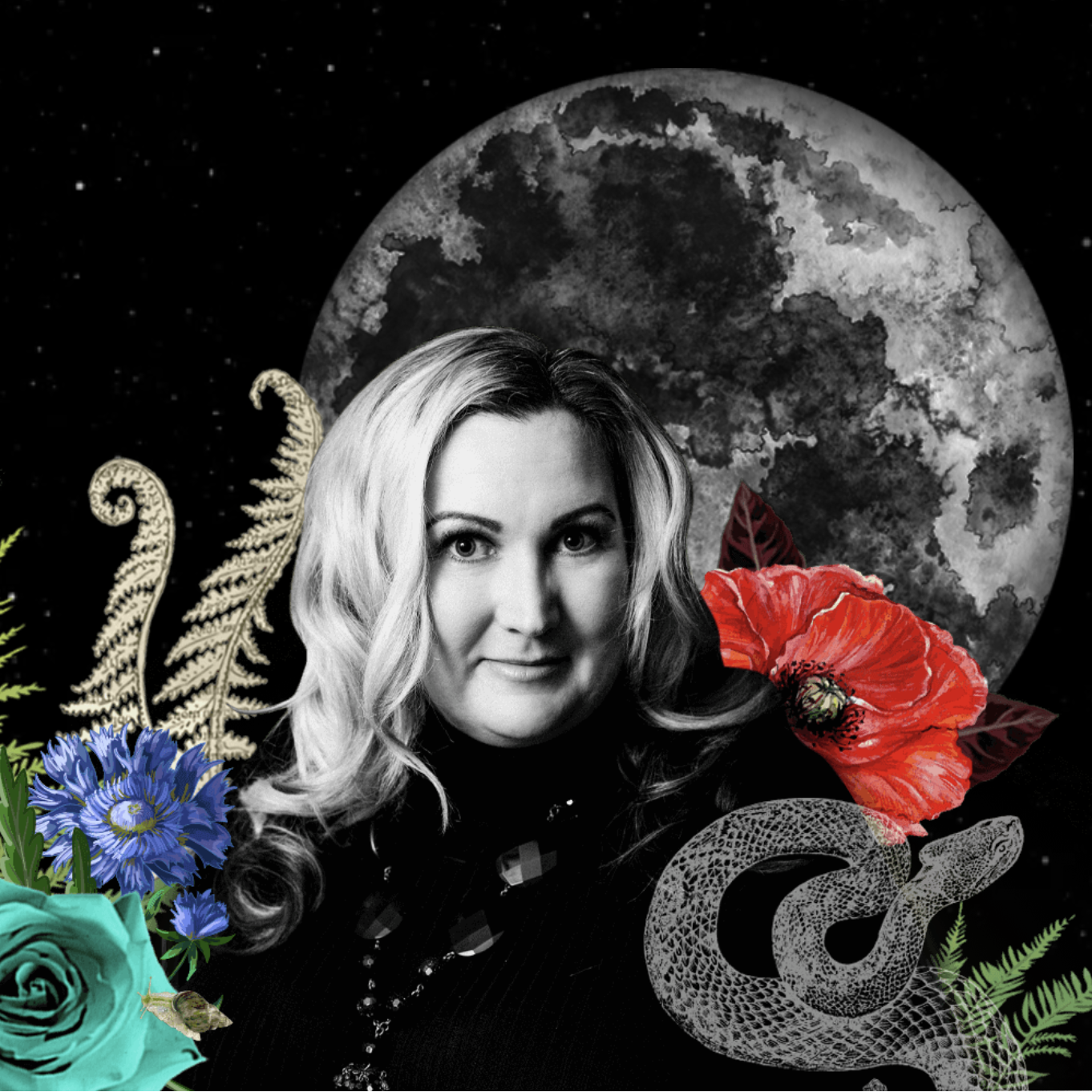
This week a friend of mine and I closed our eyes and imagined what a successful woman looks like.
I’m a fat woman with biracial kids. She’s queer. We’re both entrepreneurs and marketers. Arguably we’ve both achieved a modicum of professional success.
Even so, the woman who manifested in our brains as the image of The Successful Woman looked nothing like us.
The woman who stepped into our brains was tall, thin, youngish, white, straight, super feminine, made-up, with long professionally-waved hair. I call that woman The Female Lifestyle Empowerment Brand — and she’s fairly universal. She appears whenever I ask people to imagine a successful woman.
That’s our social conditioning at work, telling us what kind of woman deserves rights and resources in our culture and telling us what kind of women we should pay attention to and follow.
That’s often who we think we need to present to the world in our own marketing…
and, often, it’s who we are explicitly TAUGHT to market.
***
Yesterday I was thinking about something that happened a few years ago and got to wondering: how long, on person X’s Instagram feed, until I see a person of colour?
She’s someone really ‘internet famous’. Has blue check beside her name. Coined a funny hashtag. Thousands of women take her courses about how to build their online platforms. They look to her as aspirational. They want to be like her, which is why they want to learn from her.
In her Instagram feed, you’ll see pictures of her clients, her friends, her family. All of them white.
So how long until we see a picture of a person of colour?
The answer? 63 rows. 189 pictures of white people, 1 picture of a POC.
In every other picture, the people are coiffed, perfectly dressed in coordinating clothes at perfect locales, made up, shined up, posed. As my friend who pointed this feed out to me in the first place pointed out, when black people finally make it into this woman’s feed and photographs, they are way too young to have consented to the photo; are wearing ill-fitting clothes; have ashy skin; and are sitting on the ground looking up at the white photographer. The point of the photo — unlike every other photo in her feed — wasn’t to celebrate their beauty. It was to highlight their poverty. These kids aren’t her friends or family. When you read the caption, you find out these preschoolers in the Dominican Republic, where this Instagram White LadyTM does missionary work.
So: white people in her photos get professional made up, clothes that coordinate with the other people in the photograph, and appear in nearly 200 photos.
Then, when black people appear in her images, they get none of that care and styling. They get to be objects, not subjects. They get to be evidence of her charity.
I kept counting. I counted another 64 rows/192 pictures of white people until I saw another POC. This time it was a beautiful biracial twenty-something in her underwear. Again, another stranger: this was a sponsored post from an underwear company.
That pattern continued. Hundreds of photos of white people, and when it was time for a sponsored post from the underwear company or a post promoting her charity in the DR, then black people appeared.
I had to scroll all the way back to 2015 — 4 years of photos! — before I found a photo of a POC who was NOT part of a sponsored post/missionary promo. (A couple of her clients in 2015 were mixed race couples. White women, men of colour.)
And oh yes, those photos of the kids in the DR? She just uses the same ones over and over again.
You’ll notice I’m not naming her. This is deliberate. Who she is, is irrelevant. She’s one of many — even if her feed and platform suddenly disappeared, the pattern would continue.
It’s the pattern that’s the problem. And the pattern is white supremacy.
***
If our social media feeds are curated, highlighted versions of our real lives, what do feeds like this tell us about her life and who it’s populated by?
What does it tell us about her hiring practices?
What does it tell us about what success looks like?
***
Representation matters. It’s hard to be something we don’t see.
Like, a successful fat woman. A successful woman using a wheelchair. A successful trans woman, queer woman, woman of colour, black woman.
Or even any of those people in the first place without the modifier.
***
It used to be that the images and messages we were influenced by came from advertisers, magazines, newspapers, cable TV, publishing houses.
A whole lot of second-wave feminist analysis was about how magazines were creating unrealistic images of women and therefore causing material harm to women’s physical and mental health.
Now, because of those analyses, I read magazines with a lot of critical distance. I know about airbrushing, lighting, weaves. I know none of it is real, so it doesn’t affect me as intimately and viscerally as it used to.
And…I don’t read a lot of print magazines, anymore. I read blog posts and Medium posts and online magazine posts. I scroll social media.
So now, the arbiters of culture maker and media makers aren’t necessarily *exclusively* the publishers or editors of print magazines.
They’re us.
With every image we post on social media, WE are the culture makers.
We’re the ones telling other women what success looks like and how to get it.
***
A lot of the time, we’re doing that — culture making — unconsciously. We’re trying to post pictures that make us look good but that will not, hopefully, attract hateful or hurtful comments. We’re trying to get attention, without looking like attention seekers. We’re trying to connect with each other.
We’re not necessarily connecting the dots between how *only* posting pictures of thin women, pretty women, able-bodied women, cis women, white women (the list goes on) on our social media is EXACTLY what mainstream media did to us, and what we’re now doing to other women.
Or…we do notice. We notice which photos get likes and post more of those, and fewer of the other ones.
***
I mean this email to be a mirror we each look into, not a weapon we use against someone else.
I mean for each of us to look at our own feeds and see if our social conditioning is running them or if we are, deliberately.
We are all culture makers.
Even when we don’t know we are.
Even when we’re not doing it deliberately.
Even when we have decided to get a little more for ourselves in the existing culture and the status quo.
The media we make from each those positions shapes our shared reality.
Here’s what I’m hoping: that we realize that yes, we are culture makers and then use that power DELIBERATELY to shape norms and co-create a future in which we all flourish.
***
All this to say: your social media is a huge opportunity.
You don’t have to have a blue check by your name to be a culture maker. You don’t have to have thousands of followers, a business or a brand to be a culture maker.
You can use what you’ve got to be a culture maker.
And almost all of us have a social media account of some kind.
You have total control over what you publish on your social media, which means so there’s a very high return on your investment of time and effort…and, other than the platforms themselves, no one can really stop you.
We don’t have to wait for anyone to change what they are doing to start creating a new culture. We can decide what kind of culture we want to live in and start shifting the norms, starting now.
It’s starts out small and then ripples out.
***
There’s research, for example, that shows that what bloggers are writing about to their small audience gets noticed by journalists at small publications. Those journalists then write about what the bloggers are writing about. Then the reporters at bigger magazines and prestige publications pick up on those stories and they enter the mainstream.
But the idea or conversation that got normalized didn’t start with the prestige publication; it started with the person with the small audience and the small social media following.
That’s how we start changing the oppressive images that pop into our heads when we think “successful”.
It’s how we get free of The Female Lifestyle Empowerment Brand and white supremacy and heteronormativity and misogyny (and, and,and): we change our influences, we stop letting our conditioning run our social media accounts, and we recondition ourselves towards freedom. We become the authors of our culture, deliberately.
Let’s use what we’ve got, deliberately, to create a new culture.
***
Here’s one ripple we can each start: we can each review our **own** feeds and ask ourselves this:
Do the instagram photos we’re sharing look like the inclusive world we’re dreaming of?
If not, what needs to change in our lives and our images?
Let’s make those changes and make sure that deliberate culture makers rather than unconscious biases are the ones running our social media accounts.
love + justice,
Kelly


